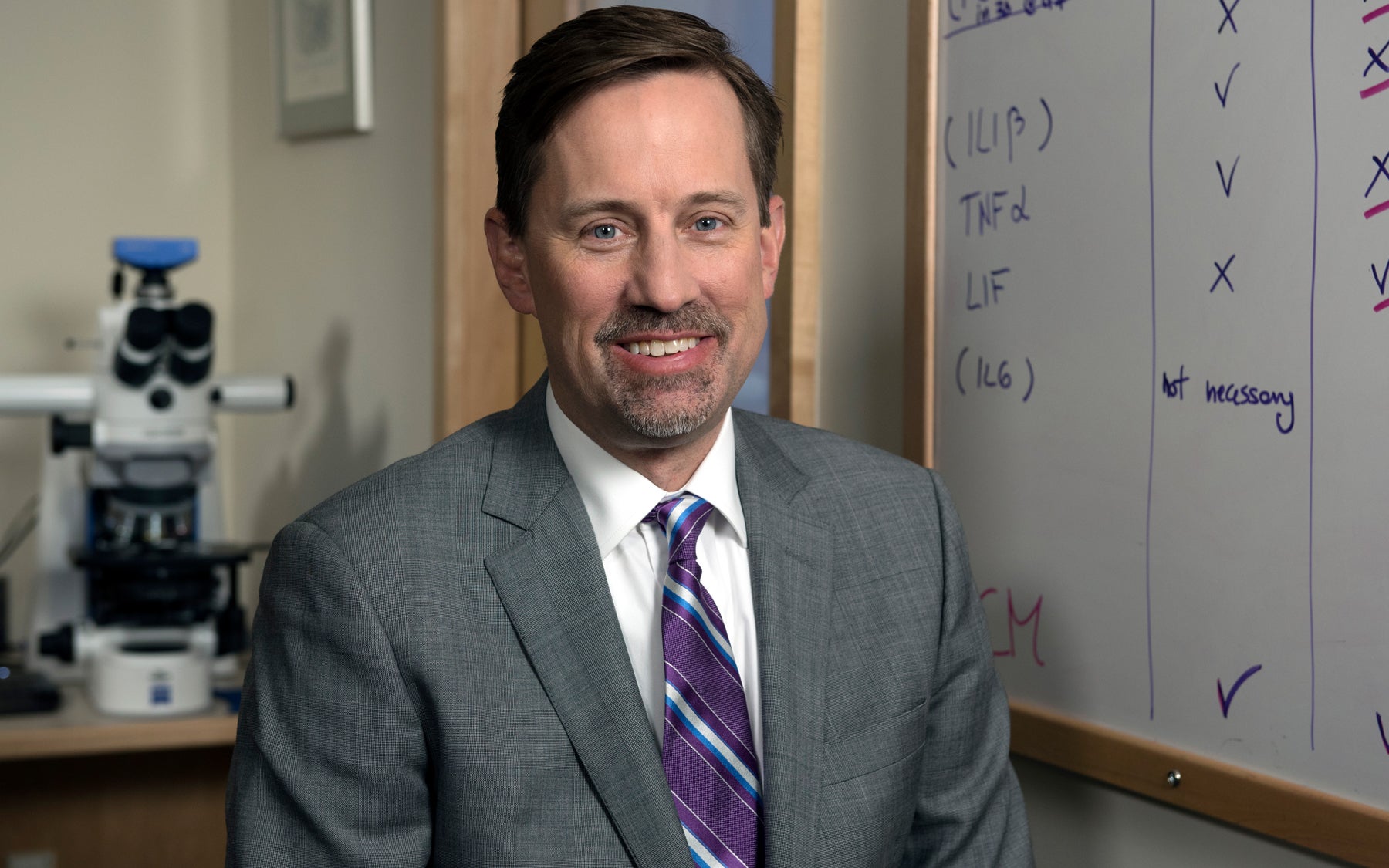Support for research to create the first accurate animal models of neuroendocrine tumors
Cold Spring Harbor, NY — The Caring for Carcinoid Foundation has announced the award of a new research grant to Cold Spring Harbor Laboratory (CSHL) Professor David Tuveson, M.D., Ph.D. The grant, in the amount of $300,000, provides funding over two years that will enable Dr. Tuveson to complete an ongoing project supported by the Foundation that aims to develop the first accurate mouse models of neuroendocrine tumors (NET).
“Cold Spring Harbor Laboratory is grateful for the support of the Caring for Carcinoid Foundation,” said CSHL President Bruce Stillman, Ph.D. “This grant, in particular, will enable Dr. Tuveson to complete work on modeling neuroendocrine tumors that we deem scientifically significant in its potential to shed light on a class of tumors that remains frustratingly difficult to combat.”
Neuroendocrine tumors are a type of cancer that can originate almost anywhere in the body. The most common sites from which neuroendocrine tumors arise are the lungs, appendix, small intestine, rectum, and pancreas. Neuroendocrine tumors that arise in the pancreas are called “pancreatic neuroendocrine tumors,” “islet cell tumors,” or “pancreatic endocrine tumors.” When neuroendocrine tumors originate in other areas, they are most commonly classified as “carcinoid cancer.”
“Patients with neuroendocrine tumors, including carcinoid tumors, have few therapeutic options besides surgery,” noted Dr. Tuveson. “I’ve found this to be a very frustrating reality over the years in my own clinical practice—a fact which has motivated me and my team to develop the first accurate animal models with which to learn more about these cancers.”
The development of animal models may pave the way for new treatments for carcinoid. Indeed, a key part of the newly funded research will support Dr. Tuveson’s efforts to identify pathways that are causal in neuroendocrine tumor development, a basis for the exploration of new therapeutic avenues. In addition, these animal models will enable testing of any potential new therapies.
Written by: Communications Department | publicaffairs@cshl.edu | 516-367-8455
About The Caring for Carcinoid Foundation
The Caring for Carcinoid Foundation is dedicated to discovering cures and effective treatments for carcinoid, pancreatic neuroendocrine, and related neuroendocrine cancers. Along with its focus on research, CFCF is committed to supporting patients, families, friends, and caregivers by providing them with complete and up-to-date information. CFCF directs 100% of all individual donations to breakthrough scientific research. This is made possible by the generous support of CFCF’s board of directors, corporate sponsors and pro bono legal counsel. Established in 2005, CFCF has awarded more than $8 million in research grants to leading scientists at renowned institutions worldwide. For more information about CFCF please visit http://www.caringforcarcinoid.org or call 617-948-2514.
